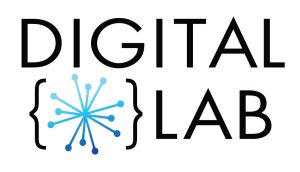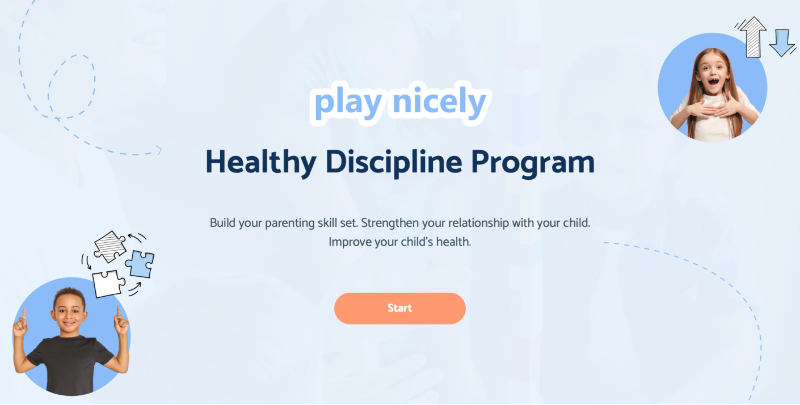 A Vanderbilt University Medical Center program designed to teach parents healthy discipline strategies is reaching a wider audience thanks to a collaboration with the Jean and Alexander Heard Libraries’ Digital Lab.
A Vanderbilt University Medical Center program designed to teach parents healthy discipline strategies is reaching a wider audience thanks to a collaboration with the Jean and Alexander Heard Libraries’ Digital Lab.
Play Nicely is a multimedia behavior intervention that presents parents, teachers and health care professionals with healthy options for responding to an aggressive child. The online program features brief videos, voiceover narration and expert guidance on how to respond constructively when young children exhibit hurtful behavior toward others.
Developed more than two decades ago by Vanderbilt Professor of Pediatrics Seth Scholer, Play Nicely has proved highly effective in helping parents choose alternatives to punitive punishment. This is crucial because how children are disciplined can have great impact on their emotional development and behavioral maturity, Scholer said. The program was developed to support pediatric health care providers when counseling parents in clinical practice. Play Nicely’s evidence-based strategies are also successful when applied across different cultural backgrounds and in various settings.
In early 2023, Scholer began working with the Heard Libraries’ Digital Lab on a significant update of the Play Nicely website, including introducing Spanish- and Arabic-language versions of the program.
“The practicality of a multimedia program like Play Nicely is that, once developed, it can be distributed online for a very low cost. However, it takes a lot of resources to update the program every five to 10 years,” Scholer said. “This update required hours of voice recording, and the Digital Lab played a pivotal role in working with Interpreter Services to record and edit the narration files that would then be integrated into the final program.”
The Digital Lab, whose mission is to advance faculty- and student-driven digital projects on campus, was integral in managing the update. Led by Digital Lab Director of Projects and Partnerships Cazembe Kennedy, the multi-phase initiative included engaging key internal and external stakeholders.

Kennedy assembled a consulting team within Heard Libraries to oversee each phase of development, including website design and navigation and incorporating streaming video. The Digital Lab identified specialized subcontractors, negotiated pricing and maintained the relationships throughout the project, ensuring these external partners remained familiar with and invested in the work. The lab collaborated with Vanderbilt University Medical Center’s Interpreter Services to translate the website and related materials into Spanish and Arabic, broadening the program’s support of parents and children, and it worked with the Office of Digital Education’s One Button Studio to record the new voiceover narration.
The Digital Lab team consulted with Scholer throughout the process to make sure the project stayed focused and met its goals. The team also coordinated with Vanderbilt’s Center for Technology Transfer and Commercialization, which licenses Play Nicely to schools, primary care clinics, organizations and businesses.
“We are extraordinarily pleased with the results,” Scholer said. “The narration is of excellent quality. The new version has a very attractive look and feel, as well as updated material to help parents use healthy discipline options to address childhood aggression and many other challenging childhood behaviors, such as anxieties, not listening, habits, lying, tantrums and ADHD. We are grateful to Dr. Meg Benningfield, director of VUMC’s Division of Child and Adolescent Psychiatry, for editing the updated content.”
Scholer said he’s also excited that the updated program has potential for wider reach with versions in English, Spanish and Arabic. “The Digital Lab developed the program in such a way that it will be relatively practical to create versions in other languages,” he said.
“The Play Nicely collaboration exemplifies the service model of the Digital Lab,” said Andrew Wesolek, senior director of the Digital Lab. “By connecting a wide range of campus partners and resources, we can advance, preserve and disseminate complex digital projects.” The lab not only leverages expertise in digital project management, development, training and education, it also makes projects sustainable by identifying opportunities to strengthen technical infrastructure, scale engagement and establish processes for continuous improvement.
The collaboration is ongoing, with beta testing of the updated program currently underway. The public is invited to view the program for free at www.playnicely.org and share feedback with Scholer at seth.scholer@vumc.org.
“This partnership demonstrates how the Digital Lab and Heard Libraries serve as essential partners for teaching and learning initiatives that reach across campus and into the community,” University Librarian Jon Shaw said. “It’s especially gratifying since Play Nicely has such a positive effect on children’s lives. The project aligns with the libraries’ mission to make knowledge accessible to wider audiences in pursuit of tackling society’s most-pressing challenges.”
Digital Lab offers seed funding opportunity for faculty
Are you a faculty member with an idea for a digital project, or do you have a project in its earliest stages? The Heard Libraries’ Digital Lab is seeking emerging digital projects to sponsor during the spring and summer of 2024. The Digital Lab will fund four projects, providing grants of up to $4,000 each.
Vanderbilt faculty members who have projects or project ideas requiring digital technology, or who are looking to develop a proof of concept to attract larger funding opportunities, are encouraged to apply. Projects should be culturally important, globally impactful and preservable in perpetuity.